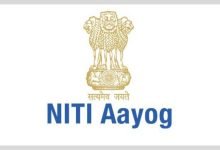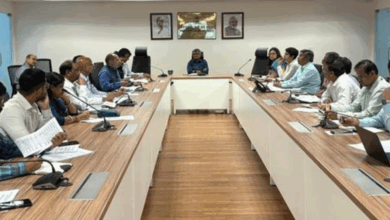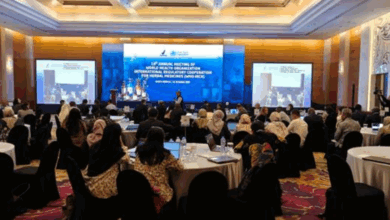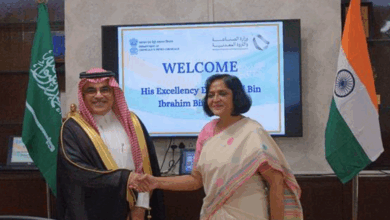DAY-NRLM organizes CSR conclave with Corporates for synergising efforts at the grassroots
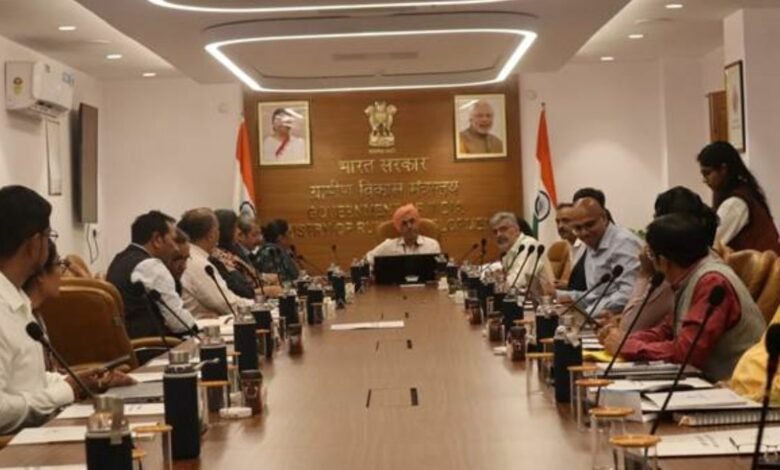
A conclave on exploring synergies between DAY-NRLM’s initiatives of Rural Transformation and Corporate House’s CSR efforts in rural areas was held under the chairpersonship of Additional Secretary, Rural Livelihoods (RL), Shri Charanjit Singh in New Delhi yesterday. Senior officers of the Ministry, NMMU, State Rural Livelihoods Missions and corporate houses participated in the conclave with the aim to provide better livelihoods to rural households.
In his keynote address, AS (RL) Shri Charanjit Singh stated that the aim of DAY-NRLM is to uplift the lives of the people at the last mile and for that, it is important to bring together as many partners as we can. He added the approach needs to be expanded from ‘Whole of Government’ to ‘Whole of Society’ towards ‘Antyodaya’ as guided by Prime Minister Shri Narendra Modi.
Smt. Nita Kejriwal, Joint Secretary, Rural Livelihoods (JS, RL) explained the horizon of possibilities of convergence between the Government’s policies through challenges and opportunities in effecting change on the ground.
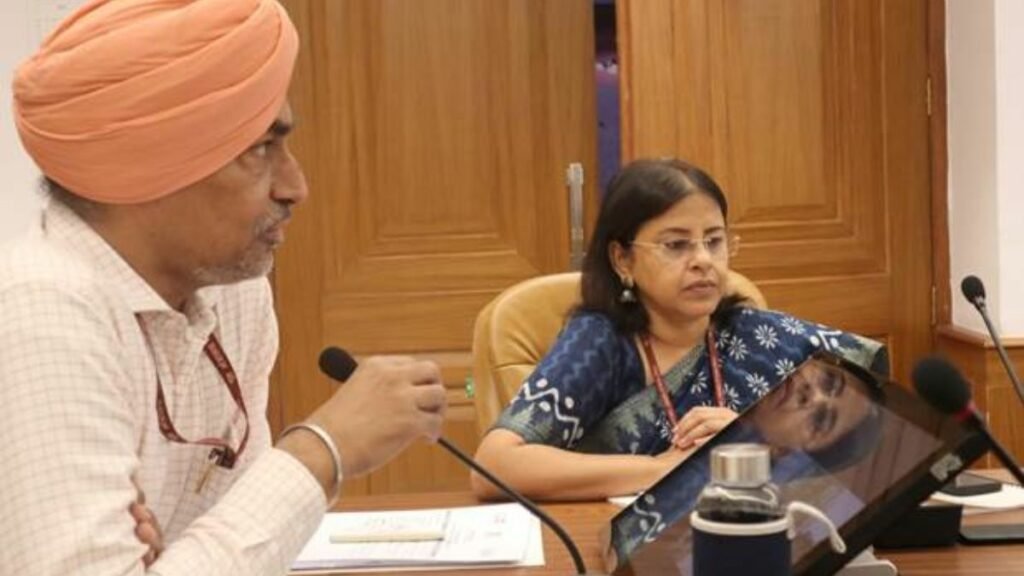
Anchoring the conclave Shri Raman Wadhwa, Deputy Director, DAY-NRLM highlighted explained the DAY-NRLM framework and highlighted the key takeaways at the conclave.
Participating corporate houses, giving examples of their current work in rural areas, expressed their willingness to join hands with this roadmap of the Ministry of Rural Development.
The conclave is the first of the series aimed towards bringing together key decision-makers in the corporate house’s CSR wings on the government’s platform for streamlining welfare initiatives in rural areas.
Background: Share of Rural Development in CSR Expenditure
It is important to note that the CSR budget spent is not necessarily a reflection of the effectiveness or impact of a company’s CSR initiatives. There are also concerns about companies fulfilling the mandatory spending by making token donations or CSR activities that lack strategic planning and impact assessment. Additionally, there is a need for greater transparency and accountability in the implementation of CSR initiatives in India. The graph below is the status of compliance with the CSR budget for the Financial Year 2020-21:
Corporate Social Responsibility Compliance 2021
Corporate Social Responsibility (CSR) initiatives can face several pain areas or challenges in their implementation, some of them are:
- Regional Disparity: Due to the compulsion of expenditure in the act to spend the amount in the catchment area of the operations, it has been observed that in the same geographical area, many of the organizations are working, whereas in some areas there is little spending. This leads to regional disparity, where some communities are not able to receive any support.
- Sectoral Disparity: As per the CSR act, every organization has a CSR mandate to spend on the sectors defined as per SDG. As every organization can decide its expenditure independently, so it has been realized that some sectors are receiving a lot of funds, whereas other sectors are not able to get an adequate budgetary allocation.
- Treatment of Unspent Budget: The latest amendment in the act requires companies to deposit the unspent CSR funds into a fund prescribed under schedule VII of the act by the end of the fiscal year.
- Finding the right Implementation Partners: Companies may not effectively engage with their stakeholders, such as communities, NGOs, and other organizations, so finding the right Implementation Agency is a difficult task.
- Duplication of activities in the same project area: Companies may not have information about all the beneficiaries and the support they are receiving from different CSR initiatives, so there are high chances of duplication in the project area, where the benefits are drawn from the same set of beneficiaries.
- Limited sustainability: Companies may not focus on long-term sustainability and may not have the ability to scale their CSR initiatives to achieve greater impact.
- Compliance over Impact: Companies may focus more on compliance with legal requirements, rather than on the impact of their CSR initiatives.
- Tokenism: Companies may make token donations or undertake CSR activities that lack strategic planning and impact assessment, just for the sake of fulfilling the mandatory spending.
- Lack of Community Participation: The majority of the companies focus on expenditure, but may fail to ensure the participation of the community due to a lack of systems.
Background: DAY-NRLM
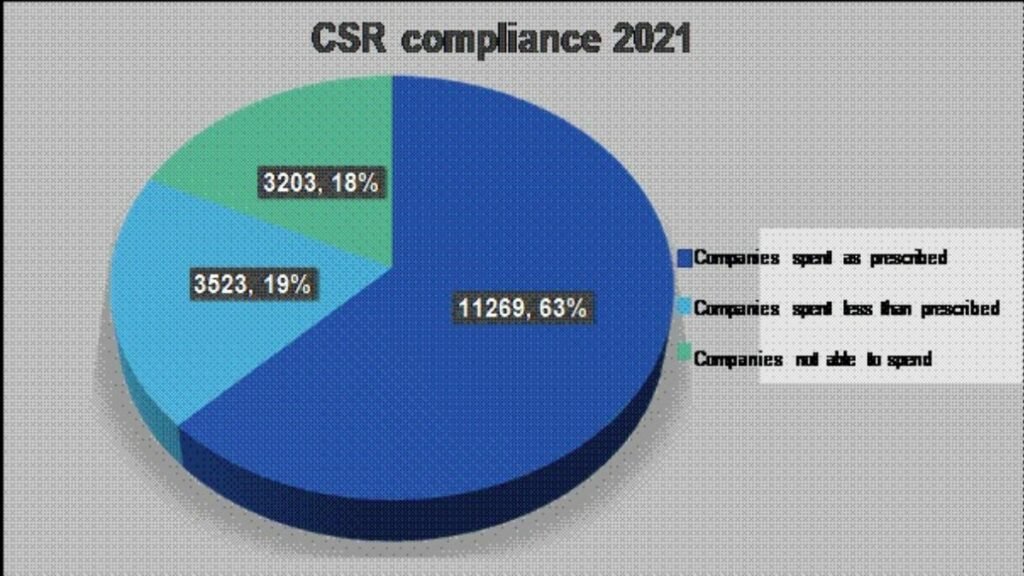
Deendayal Antyodaya Yojana-National Rural Livelihood Mission (DAY-NRLM) as a flagship poverty alleviation program aims to reduce poverty by enabling the poor household to access gainful self-employment and skilled wage employment opportunities resulting in sustainable and diversified livelihood options for the poor. This is one of the world’s largest initiatives to improve the livelihoods of the poor. The Mission seeks to achieve its objective through investing in four core components viz., (a) social mobilization and promotion and strengthening of self-managed and financially sustainable community institutions of the rural poor women; (b) financial inclusion; (c) sustainable livelihoods; and (d) social inclusion, social development and access to entitlements through convergence.
The Mission has covered 6811 blocks spread over 709 districts across all States and UTs (except Delhi and Chandigarh) under the intensive strategy.
8.33 crore women have been mobilized into 76.5 lahks Self-Help Groups (SHGs). In addition, implementation was initiated in 1951 Model CLFs identified under the program.
DAY-NRLM promotes sustainable agriculture, livestock and NTFPs in intensive blocks under the Farm interventions. The focus of the interventions is on training and capacity building, and the promotion of agroecological practices as well as livestock practices to enhance crop and animal productivity. As of date, 3.10 crore women farmers have been covered under these interventions. Apart from this, more than 14 lakh women have been mobilized into Producer Groups/Producer Companies and about 3.86 lakh SHG members have been mobilized into 183 Producer Companies.
Disclaimer: This is an official press release by PIB.

